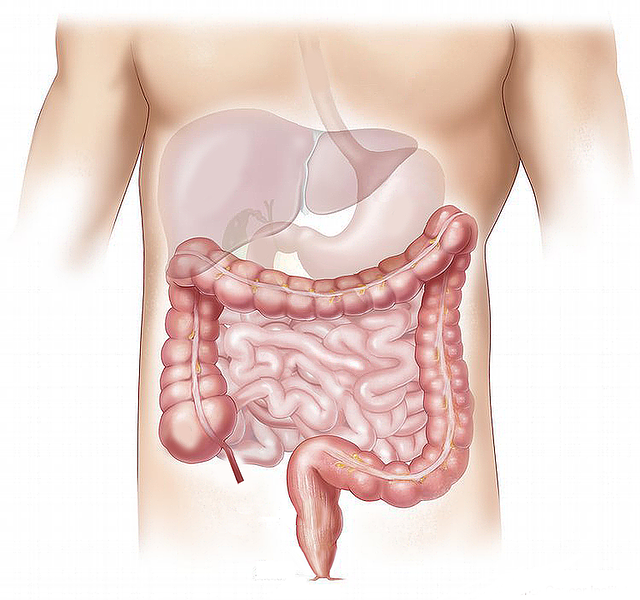
The Occurrence of Colorectal Cancer is on the Rise. Have you Assessed your Risk Level?
Written by Christine Bishara MD
Colorectal cancer rates have been increasing globally, particularly among younger individuals. The incidence of colorectal cancer in those under fifty has risen by over 51% since 1994, according to The National Cancer Institute.
Young-Onset Colorectal Cancer Center – Dana-Farber Cancer Institute | Boston, MA
What is Causing this Increase?
The most causes are changes in diet and lifestyle changes. However, there is emerging data that suggests the gut microbiome, stress, sun exposure and vitamin D deficiencies may also play significant roles.
Typical Risk Factors Include:
● Family history of colorectal cancer
● Personal history of colorectal cancer
● Familial genetic polypoidal conditions
● Obesity
● Smoking
● Alcohol
● Diets high in processed, highly saturated foods and low in fiber
● History of Inflammatory bowel disease
● Lack of physical exercise
Added Information:
- Globally, Hungary and South Korea are the two countries with the highest incidence of colon cancer. Several possible factors could contribute to the high incidence of cancer in these countries. These include a high-fat, low-fiber diet that is prevalent in these countries. Other factors that have been noted are heavy alcohol consumption in Korea and a lack of timely cancer screenings in Hungary
- The incidence of colorectal cancer is lowest in Africa. This may be due to the adequate sun exposure. Vitamin D is synthesized in the skin when it is exposed to sunlight. As well as, Africans typically consume a high fiber diet. High fiber diets are associated with a reduced risk of colorectal cancer.
- Overall, men have a higher incidence of colon cancer than women.
- Left-sided and rectal cancers are more frequently diagnosed in younger individuals, while right-sided cancer is more common in older individuals.
- Studies have found a link between the gut microbiome and inflammation and immune health, with certain bacterial strains such as fusobacterium and providencia being associated with an increased risk of colon cancer. New colon cancer culprit found in gut microbiome
- Several studies have shown that low levels of vitamin D and inadequate sun exposure can increase the risk of colorectal cancer. Too Little Sunlight, Vitamin D May Raise Colon Cancer Risk | Health News
- Chronic stress can lead to chronic inflammation and increase the risk of colon cancer due to the release of stress and immune responders in the body.
Colon cancer screening is crucial because even though some individuals may have symptoms, many others do not.
The Most Common Signs:
- Changes in ones bowel habits. This was the most commonly noted symptom present at time of initial diagnosis.
- Bleeding of the rectum. Most associated with change in bowel habits.
- Rectal mass. As well as abdominal mass.
- Anemia. Deficiency in Iron.
- Abdominal pain
Which Population Should Be Screened:
In 2021, The US Preventive Services Task Force has lowered the recommended age for colorectal cancer screening from 50 to 45 for individuals with average risk. Those with higher risks, such as family history or inflammatory bowel disease, should consult with a gastroenterologist and assess the need for screening tests earlier
A colonoscopy is the most common screen test at present. A Fecal Immunochemical Test (FIT) is a possibility for certain individuals who are lower risk. They can speak to their doctors about the possibility of whether they are a good candidate for a FIT test.
The FIT uses antibodies to detect blood in the stool.
It is important to note that many adults are not up to date with screening, and early detection can lead to better outcomes.
Lifestyle and Diet Tips that can Help Decrease your Risks of Colorectal Cancer:
- Get SCREENED for colorectal cancer routinely, beginning at age 45.
- Eat a healthy diet high in FIBER that includes lots of vegetables, fruits, and whole grains. High fiber diets that include lots of vegetables, fruits, and whole grains have been linked with a decreased risk of colorectal cancer. https://www.cancer.org/cancer/latest-news/six-ways-to-lower-your-risk-for-colon-cancer.html
- Avoid Tobacco. QUIT SMOKING.
- EXERCISE regularly.
- Get adequate amounts of sun exposure by walking 20-30 minutes outdoors. If your VITAMIN D levels are low, a vitamin D3 supplement may be a good option. Be sure to get your vitamin D levels checked with your doctor.
- Maintain a HEALTHY WEIGHT.
Colorectal cancer screening and healthy lifestyle habits are crucial for reducing the incidence and mortality of colorectal cancer. Regular screening starting at age 45 is the most effective way to reduce the risk of colorectal cancer. Additionally, lifestyle choices such as increasing physical activity, maintaining a healthy weight, and eating a high fiber diet in fruits, vegetables, and whole grains can also reduce the risk of developing colorectal cancer. By prioritizing both screening and healthy lifestyle habits, we can work towards reducing the burden of colorectal cancer and improving overall health outcomes.
So remember to always consult with your doctor and to make sure to stay up to date with your cancer screenings.
